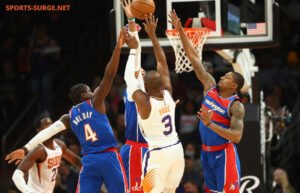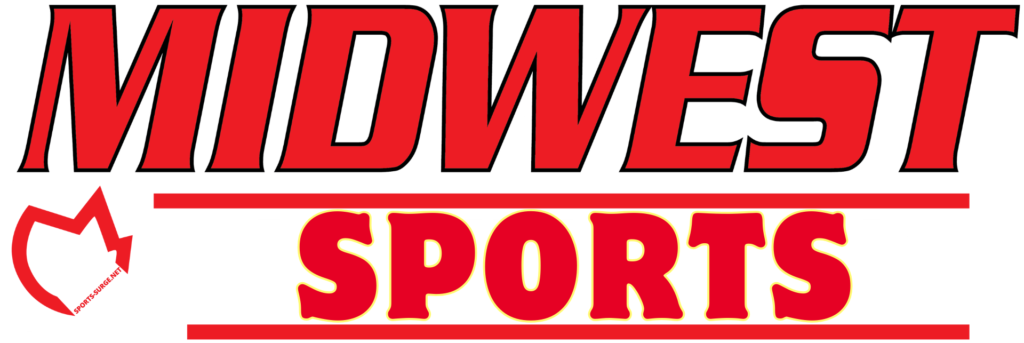The Midwest Sports, often referred to as America’s Heartland, boasts a rich and diverse sports culture that reflects its historical roots and contemporary enthusiasm. Encompassing states like Illinois, Indiana, Iowa, Kansas, Michigan, Minnesota, Missouri, Nebraska, North Dakota, Ohio, South Dakota, and Wisconsin, the region has significantly influenced the national sports landscape.
Table of Contents
ToggleHistorical Foundations of Midwest Sports

The Midwest sports heritage dates back to the late 19th and early 20th centuries. In 1879, the University of Michigan established one of the first college football teams west of Pennsylvania, marking a pivotal moment in the sport’s expansion. Their inaugural game against Racine College in Chicago was heralded as “the first rugby-football game to be played west of the Alleghenies.” This event set the stage for other Midwestern institutions, such as the University of Chicago and Northwestern University, to form their own teams, fostering a burgeoning football culture in the region.
Basketball also found fertile ground in the Midwest. The National Basketball League (NBL), founded in 1937, featured teams primarily from the Great Lakes area. This league played a crucial role in the development of professional basketball, eventually merging with the Basketball Association of America in 1949 to form the National Basketball Association (NBA). The NBL’s emphasis on small-market and corporate teams highlighted the Midwest’s passion for basketball and its commitment to nurturing local talent.
Collegiate Sports: A Pillar of Midwest Identity

Collegiate athletics are deeply ingrained in Midwestern culture, with universities boasting storied programs and fierce rivalries. The Big Ten Conference, established in 1895 as the Intercollegiate Conference of Faculty Representatives, is a testament to this tradition. Comprising flagship universities from the region, the conference has been instrumental in shaping college sports in America.
Basketball, in particular, has seen significant success among Midwestern universities. The Indiana Hoosiers men’s basketball team, for instance, has secured five NCAA National Championships, placing them among the elite programs in the nation. Similarly, the Purdue Boilermakers have a rich basketball history, with a national championship in 1932 and multiple Big Ten titles. These achievements underscore the region’s dedication to excellence in collegiate sports.
Professional Sports: A Legacy of Excellence

The Midwest Sports is home to numerous professional sports teams that have left indelible marks on their respective leagues. In Major League Baseball (MLB), teams like the St. Louis Cardinals and the Chicago Cubs have cultivated passionate fan bases and historic rivalries. The Cardinals, in particular, are celebrated for their numerous World Series titles, reflecting the region’s deep-rooted baseball culture.
In the National Football League (NFL), the Green Bay Packers and the Chicago Bears share one of the oldest and most storied rivalries in the sport. Dating back to their first meeting in 1921, this rivalry has seen periods of dominance by both teams and remains a highlight of the NFL season. The Packers, based in the small town of Green Bay, Wisconsin, exemplify the community-centric spirit of Midwestern sports.
Recent Developments in Midwest Sports (as of 2024)
The Midwest continues to be a dynamic hub for sports, with recent developments highlighting its evolving landscape.
- Sports Betting Legalization: Several Midwestern states have embraced the legalization of sports betting, enhancing fan engagement and generating significant revenue. Michigan, for instance, legalized online sports betting in January 2021, with platforms like ESPN BET Michigan launching in November 2023. These platforms offer a variety of promotions and cater to the state’s fervent sports fan base.
- Coaching Changes in Collegiate Football: The 2024 Big Ten football season has seen scrutiny of coaching positions due to team performances. Notably, Ohio State’s head coach, Ryan Day, faced significant pressure after consecutive losses to Michigan, leading to discussions about potential changes in leadership.
- Professional Team Achievements: Midwestern professional teams continue to excel. The Detroit Lions, for example, have shown remarkable improvement, with their performance in the 2024 season bringing renewed hope to fans. Similarly, the Milwaukee Bucks have maintained their status as strong contenders in the NBA, showcasing the region’s competitive spirit.
Cultural Impact and Community Engagement
Sports in the Midwest are more than just games; they are integral to the region’s cultural fabric. High school sports, particularly basketball and football, draw significant community support, fostering local pride and unity. Events like “Hoosier Hysteria” in Indiana highlight the deep-rooted passion for basketball at the grassroots level.
Moreover, the Midwest Sports has been instrumental in promoting diversity and inclusion in sports. The region has produced trailblazing athletes who have broken barriers and set new standards. For instance, Jesse Owens, an Ohio native, won four gold medals at the 1936 Berlin Olympics, challenging racial prejudices and leaving a lasting legacy.
Conclusion
The Midwest sports scene is a rich tapestry woven from historical achievements, collegiate pride, professional excellence, and community involvement. As of 2024, the region continues to adapt and thrive, embracing new opportunities while honoring its storied past. Whether through the roar of college football crowds, the strategic plays on basketball courts, or the community gatherings at local high school games, sports remain a unifying and defining element of Midwestern life.
FAQs about Midwest Sports
What are the major professional sports teams based in the Midwest?
The Midwest is home to numerous professional sports teams across various leagues:
- NFL: Chicago Bears, Cincinnati Bengals, Cleveland Browns, Detroit Lions, Green Bay Packers, Indianapolis Colts, Kansas City Chiefs, Minnesota Vikings.
- MLB: Chicago Cubs, Chicago White Sox, Cincinnati Reds, Cleveland Guardians, Detroit Tigers, Kansas City Royals, Milwaukee Brewers, Minnesota Twins, St. Louis Cardinals.
- NBA: Chicago Bulls, Cleveland Cavaliers, Detroit Pistons, Indiana Pacers, Milwaukee Bucks, Minnesota Timberwolves.
- NHL: Chicago Blackhawks, Columbus Blue Jackets, Detroit Red Wings, Minnesota Wild, St. Louis Blues.
- MLS: Chicago Fire FC, FC Cincinnati, Columbus Crew SC, Sporting Kansas City, Minnesota United FC, St. Louis City SC.
- NWSL: Chicago Red Stars, Kansas City Current.
These teams have rich histories and dedicated fan bases, contributing significantly to the region’s vibrant sports culture.
Which Midwest college sports teams have notable rivalries?
The Midwest hosts several intense college sports rivalries, particularly within the Big Ten Conference:
Football
-
- Michigan Wolverines vs. Ohio State Buckeyes: Known as “The Game,” this rivalry is considered one of the greatest in college football.
- Minnesota Golden Gophers vs. Wisconsin Badgers: Compete for Paul Bunyan’s Axe, representing the most-played rivalry in NCAA Division I Football Bowl Subdivision.
- Indiana Hoosiers vs. Purdue Boilermakers: Battle for the Old Oaken Bucket, a tradition dating back to 1925.
Basketball
-
- Indiana Hoosiers vs. Purdue Boilermakers: A fierce in-state rivalry with significant implications in Big Ten standings.
- Michigan Wolverines vs. Michigan State Spartans: Known as the “State of Michigan Rivalry,” it’s a highlight of the basketball season.
These rivalries are celebrated events, drawing substantial attention from fans and media alike.
How can I watch regional sports networks like Bally Sports Midwest?
Bally Sports Midwest broadcasts games for teams such as the St. Louis Cardinals (MLB) and St. Louis Blues (NHL). Fans can access Bally Sports Midwest through various platforms:
- Cable or Satellite TV: Available on most major providers; check with your local provider for channel listings.
- Streaming Services: Platforms like Hulu Live, YouTube TV, and Sling TV may offer Bally Sports Midwest as part of their channel lineup. Availability can vary, so it’s advisable to confirm with the specific service.
- Bally Sports App: Subscribers can stream live games via the Bally Sports app by authenticating with their TV provider credentials.
For detailed instructions on accessing Bally Sports Midwest on devices like Roku, refer to guides such as How To Watch Bally Sports Midwest On Roku.
What is the status of sports betting legalization in Midwest states?
Sports betting legislation varies across Midwest states:
- Michigan: Legalized both retail and online sports betting. Platforms like ESPN BET Michigan launched in November 2023, offering promotions such as “Bet $10, Get $100 in Bonus Bets plus ESPN+.”
- Illinois: Legal sports betting is operational, with both in-person and online options available.
- Indiana: Allows both retail and online sports betting, with several licensed operators.
- Ohio: Legalized sports betting, with services expected to commence soon.
- Wisconsin: Sports betting is in early stages, primarily available at tribal casinos. Online sports betting remains illegal, with no current bills proposed to regulate it.
It’s essential to consult local regulations and authorized platforms for the most current information, as the legal landscape is continually evolving.
What are some notable sports events and venues in the Midwest?
The Midwest hosts several prominent sports events and venues:
- Indianapolis Motor Speedway (Indiana): Home to the Indianapolis 500, one of the most prestigious auto races globally.
- Wrigley Field (Illinois): Historic ballpark in Chicago, home to the Chicago Cubs.
- Lambeau Field (Wisconsin): Iconic stadium in Green Bay, home to the Green Bay Packers.
- Dayton 500 (Ohio): Hosts the NCAA Men’s Basketball Tournament First Four games annually.
These venues and events are integral to the Midwest’s rich sports heritage, attracting fans from across the nation.
How can athletes and coaches in the Midwest enhance their performance?
Athletes and coaches can consider the following strategies:
- Mental Preparation: Engage in mental imagery, controlled breathing, visualization, and positive self-talk to boost confidence and game readiness.
- Physical Conditioning: Implement sport-specific training regimens to improve strength, agility, and endurance.
- Continuous Education: Stay updated with the latest coaching techniques and sports science developments.
- Reflective Practices: Utilize tools like the “30 Questions For Athletes and Coaches To Consider” to assess and refine sports identity and goals.
By integrating these practices, athletes and coaches can work towards achieving peak performance levels.

